Audi Axes The Sport Quattro Concept
The Audi Sport Quattro Concept, which served as an homage to the original Audi Quattro of Group B rallying fame, won’t make it to production after all.
The Sport Quattro Concept was first shown at the 2010 Paris Motor Show and marked the 30th anniversary of Audi’s Quattro all-wheel-drive system. The German automaker reaffirmed its interest in the concept at the 2013 Frankfurt Motor Show, introducing an updated version powered by a 4.0-liter twin turbo V8 with a hybrid system, good for 690 horsepower and 590 lb-ft of torque. Rumors surfaced Audi was going to put it into production, but Audi Sport boss Stephan Winkelmann put them to bed in a recent interview with Car & Driver.
“It’s a nice dream,” Winkelmann said in regards to the concept. “but I think we have so much in front of us that the most important thing is to get the lineup where we need it. I think there is the opportunity for a very limited car, but this is not my top priority at the moment.”
Instead of investing in limited-run halo cars like the Sport Quattro, Audi is turning its attention toward introducing more RS models, namely crossovers and SUVs. In a separate sit down with C&D, Winkelmann said “a CUV shift is due” for the RS brand as crossovers and SUVs have good global appeal. The Q7 and upcoming Q8 are said to get the RS treatment first, but the Q5 may also get a performance injection.
There’s not just crossovers and SUVs from RS on the horizon, thankfully. The RS4 Avant is on the way and Winkelmann confirmed the brand is working on an all-new RS6 Avant for 2019. We may not get the former in North America, but C&D sources say Audi of America is currently trying to make a case for bringing the latter over. We imagine there’d be few complaints about that.
More by Sam McEachern
Latest Car Reviews
Read moreLatest Product Reviews
Read moreRecent Comments
- W Conrad I'm not afraid of them, but they aren't needed for everyone or everywhere. Long haul and highway driving sure, but in the city, nope.
- Jalop1991 In a manner similar to PHEV being the correct answer, I declare RPVs to be the correct answer here.We're doing it with certain aircraft; why not with cars on the ground, using hardware and tools like Telsa's "FSD" or GM's "SuperCruise" as the base?Take the local Uber driver out of the car, and put him in a professional centralized environment from where he drives me around. The system and the individual car can have awareness as well as gates, but he's responsible for the driving.Put the tech into my car, and let me buy it as needed. I need someone else to drive me home; hit the button and voila, I've hired a driver for the moment. I don't want to drive 11 hours to my vacation spot; hire the remote pilot for that. When I get there, I have my car and he's still at his normal location, piloting cars for other people.The system would allow for driver rest period, like what's required for truckers, so I might end up with multiple people driving me to the coast. I don't care. And they don't have to be physically with me, therefore they can be way cheaper.Charge taxi-type per-mile rates. For long drives, offer per-trip rates. Offer subscriptions, including miles/hours. Whatever.(And for grins, dress the remote pilots all as Johnnie.)Start this out with big rigs. Take the trucker away from the long haul driving, and let him be there for emergencies and the short haul parts of the trip.And in a manner similar to PHEVs being discredited, I fully expect to be razzed for this brilliant idea (not unlike how Alan Kay wasn't recognized until many many years later for his Dynabook vision).
- B-BodyBuick84 Not afraid of AV's as I highly doubt they will ever be %100 viable for our roads. Stop-and-go downtown city or rush hour highway traffic? I can see that, but otherwise there's simply too many variables. Bad weather conditions, faded road lines or markings, reflective surfaces with glare, etc. There's also the issue of cultural norms. About a decade ago there was actually an online test called 'The Morality Machine' one could do online where you were in control of an AV and choose what action to take when a crash was inevitable. I think something like 2.5 million people across the world participated? For example, do you hit and most likely kill the elderly couple strolling across the crosswalk or crash the vehicle into a cement barrier and almost certainly cause the death of the vehicle occupants? What if it's a parent and child? In N. America 98% of people choose to hit the elderly couple and save themselves while in Asia, the exact opposite happened where 98% choose to hit the parent and child. Why? Cultural differences. Asia puts a lot of emphasis on respecting their elderly while N. America has a culture of 'save/ protect the children'. Are these AV's going to respect that culture? Is a VW Jetta or Buick Envision AV going to have different programming depending on whether it's sold in Canada or Taiwan? how's that going to effect legislation and legal battles when a crash inevitibly does happen? These are the true barriers to mass AV adoption, and in the 10 years since that test came out, there has been zero answers or progress on this matter. So no, I'm not afraid of AV's simply because with the exception of a few specific situations, most avenues are going to prove to be a dead-end for automakers.
- Mike Bradley Autonomous cars were developed in Silicon Valley. For new products there, the standard business plan is to put a barely-functioning product on the market right away and wait for the early-adopter customers to find the flaws. That's exactly what's happened. Detroit's plan is pretty much the opposite, but Detroit isn't developing this product. That's why dealers, for instance, haven't been trained in the cars.
- Dartman https://apnews.com/article/artificial-intelligence-fighter-jets-air-force-6a1100c96a73ca9b7f41cbd6a2753fdaAutonomous/Ai is here now. The question is implementation and acceptance.



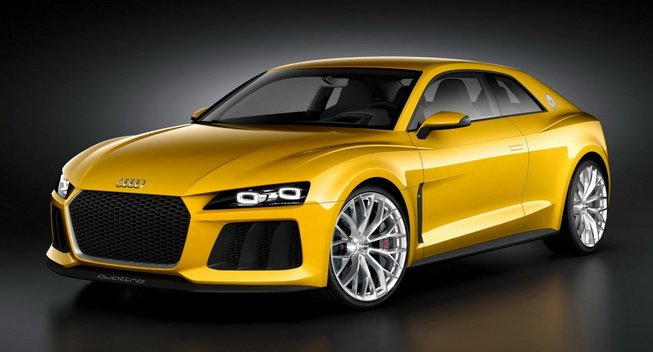















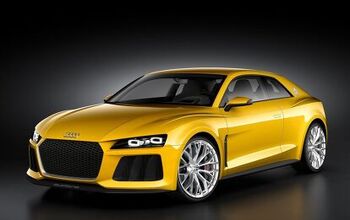
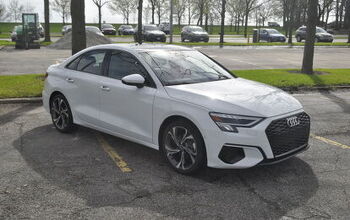
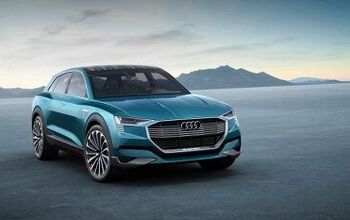
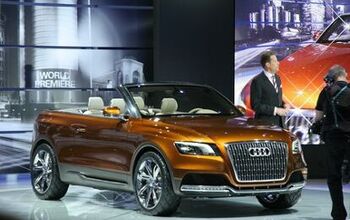
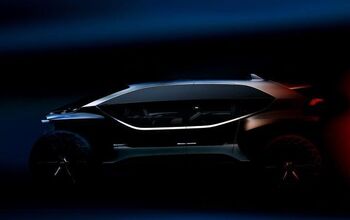
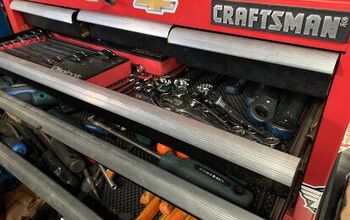









Comments
Join the conversation
Jack it up a bit and put some underbody cladding on it: new trend of 3-door utes. Kinda like the SAAB 9X concept was going to be...?
Dang, that looked pretty sweet, and even my wife agreed. The original Quattro was the car that first made me fall for Audi in the first place, long before I could afford one. As the former owner of a TT, and the current owner of an A5, this could have been right up my alley, but honestly, I do not need 690 HP. An S5 is probably as far up market as I will ever go.